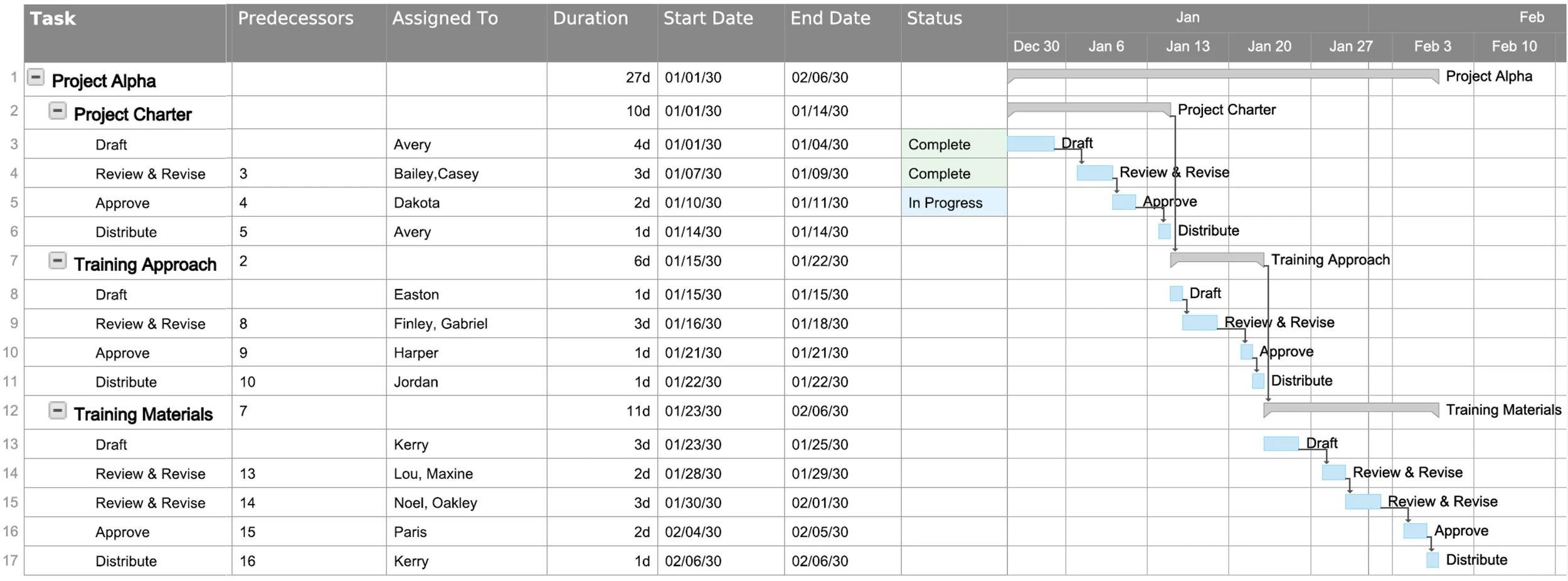Five Verbs (IP)
Five Verbs expresses a framework for a formal project plan to govern documentation and nothing else.
Slice of a project plan using Five Verbs.
The expression has these objectives.
Replace the RACI framework, which harbors too much ambiguity, gives a false sense of governance, and has not solved VUCA.
Clarify exactly what a team feels is worth documenting and formally managing.
Clarify that some work should avoid documentation and formal management.
Right-size work to govern a rhythm of small wins and minimize units of work that are irresponsibly too large or too small to formally manage
Minimize duration and effort to plan teamwork
Minimize duration and effort to interpret and execute a plan
Enforces collaboration and reduce long-term innovation costs
Encourage divergent thinking followed by convergent thinking
Maximize durability of teamwork outputs
Minimize work that isn’t worth this collaborative rigor
Replace project sponsors with numerous micro-sponsors
Embed a decision tiebreaker and highly visible escalation point
Improve schedule visibility and decision transparency
Minimize surprises related to assignments and timing
Shape and govern a rhythm of work
Make decision rights and responsibilities inseparable
Make authority and accountability inseparable
Make it easier for a team to change its mind
Instill “muscle memory” into a team so it can spend less time on heads-down mechanics and more time on heads-up exploration
Improves the fit of assignments and contributions across the team and among stakeholders
Set up the next team for success
The expression aims to be simple and administrative since mandating word choice feels petty. The expression forces skeptics to own their ambiguous and exotic word choices in a project plan. The framework forces skeptics to choose their own verbs or avoid verbs altogether to describe their work. The framework allows skeptics to opt out of durable teamwork and pursue disposable solo work.
Innovation practitioners use this expression as a foundation for their formal project planning.



